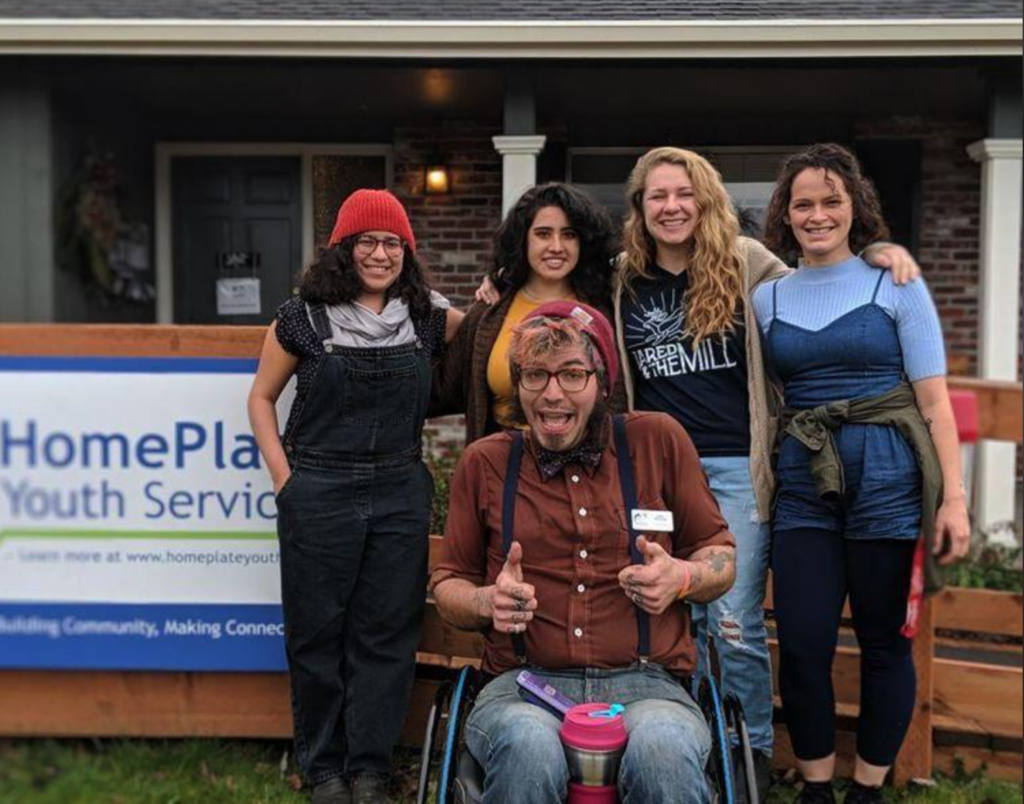For our traditional writing workshop programming, it takes two! Organizations, that is.
Each year, we collaborate with around 20 social service agencies to bring our creative writing workshops to the people they serve. While our workshops usually run for 10 weeks, every partner has different needs – which means our workshops can take on dramatically different forms!
Recently, we teamed up with HomePlate Youth Services in Beaverton, OR. HomePlate offers outreach programs and drop-in services in Washington County for teens and young adults facing barriers to housing, food, and other basic needs. HomePlate assists with food, housing, employment, and educational support, and offers a calendar of enriching life-skills activities for their drop-in youth.

Many of the people that HomePlate serves face housing instability, and come and go based on circumstances out of their control. HomePlate and Write Around both agreed that committing to a 10-week program would be a challenge for them. Together, we discussed the best way to serve as many individuals as possible, even if a participant could only come to one or two sessions.
We landed on a creative solution: to provide a creative writing workshop space once a month for ten months. The workshop was also set toward the end of HomePlate’s regular drop-in hours. This allows staff to tell visiting youth about the opportunity on the spot.
At the last session, for example, Education Coordinator Rebecca Quintana, encouraged new drop-in youth to attend. “They were already here, so I mentioned to them ‘hey we’re going to be having a writing workshop in an hour. If you want to stay and participate, please feel free.’”
At the planned time, a trained Write Around Portland facilitator arrives bearing pencils, pens, journals, snacks and writing prompts. The facilitator leads workshop attendees in timed freewrites, usually five to ten minutes. Participants then can share their work, listen to others’ writing, and receive positive, strength-based feedback.
Rebecca said she was struck by how quickly a feeling of community emerged once the writing and sharing started. “They shared things that reminded each other of things they had also experienced,” she says. “They were so supportive, especially for hardly knowing each other.”
She said the workshop also offered participants a much-needed opportunity to relax, and not have to think about their problems. “It was all really unexpected,” she adds, “in a good way.”
If you work with an agency who might be interested in partnering with us, please visit our partnership page.
